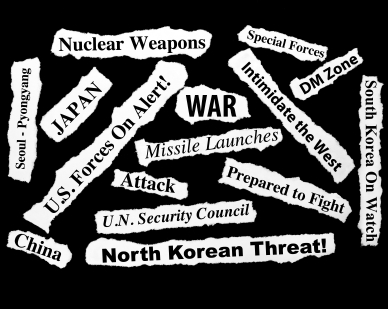Daily Report Archives
Established in December 1993, the Nautilus Institute’s *N*ortheast *A*sia *P*eace and *S*ecurity *N*etwork (NAPSNet) Daily Report served thousands of readers in more than forty countries, including policy makers, diplomats, aid organizations, scholars, donors, activists, students, and journalists.
The NAPSNet Daily Report aimed to serve a community of practitioners engaged in solving the complex security and sustainability issues in the region, especially those posed by the DPRK’s nuclear weapons program and the threat of nuclear war in the region. It was distributed by email rom 1993-1997, and went on-line in December 1997, which is when the archive on this site begins. The format at that time can be seen here.
However, for multiple reasons—the rise of instantaneous news services, the evolution of the North Korea and nuclear issues, the increasing demand for specialized and synthetic analysis of these and related issues, and the decline in donor support for NAPSNet—the Institute stopped producing the Daily Report news summary service as of December 17, 2010.
Peter Hayes, Executive Director of the Nautilus Institute, writes, “The probability that a major war could start due to provocations by either side is unknown but finite. So any increase in the risk such as this kind of palpable, visible tension poses the possibility of unacceptable and uncontrollable escalation… The only way to reduce the risk of war is to restart dialogue between the parties to the Korean conflict, most importantly, between the United States and the North.”
Go to the article
Peter Hayes, Executive Director of the Nautilus Institute, writes that the United States must, “shift the frame of reference from one focused solely on the DPRK’s nuclear threat to a regional strategy that creates a nuclear weapon free zone covering the two Koreas and Japan… This approach would recognize the DPRK as a legitimate state, but deny it nuclear weapons state-status, and calibrate its gains from joining the Zone to the pace of its nuclear disarmament, especially guarantees from nuclear weapons states to not target it… putting a plausible and credible zone in place that would stabilize the situation, devalue the DPRK’s nuclear capacities, and put the six parties back onto the denuclearization track.”
Go to the article
Siegfried S. Hecker, Co-Director of the Center for International Security and Cooperation (CISAC) and Professor of Management Science and Engineering at Stanford University, writes “It is clear that waiting patiently for Pyongyang to return to the Six-Party talks on terms acceptable to the United States and its allies will exacerbate the problem. A military attack is out of the question. Tightening sanctions further is likewise a dead end, particularly given the advances made in their nuclear program and the economic improvements we saw in general in Pyongyang. The only hope appears to be engagement. The United States and its partners should respond to the latest nuclear developments so as to encourage Pyongyang to finally pursue nuclear electricity in lieu of the bomb. That will require addressing North Korea’s underlying insecurity. A high-level North Korean government official told us that the October 2000 Joint Communiqué, which brought Secretary Madeleine Albright to Pyongyang, is a good place to start.”
Go to the article

Siegfried S. Hecker, professor at Stanford University and Co-Director of the Center for International Security and Cooperation, writes, “Military might is the only source of Pyongyang’s diplomatic power today. Nuclear weapons have become central to the projection of its military might, in spite of the fact that its nuclear arsenal has little war-fighting utility. Pyongyang views nuclear weapons as diplomatic equalizers with its much more prosperous and powerful, but non-nuclear rivals, South Korea and Japan. Without nuclear weapons, North Korea would get scant attention from the international community. Many believe that the bomb is only a bargaining chip and that North Korea is willing to sell it for the right price. However, for reasons stated above, there is no price high enough for Pyongyang to sell. It is also not about to give up its nuclear weapons first as a condition of normalization. Pyongyang may agree to denuclearize in principle, but it will drag out implementation as it did during the six-party process.”
Go to the article


